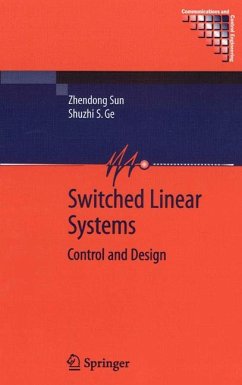
A Linear Systems Primer (eBook, PDF)
Versandkostenfrei!
Sofort per Download lieferbar
72,95 €
inkl. MwSt.
Weitere Ausgaben:

PAYBACK Punkte
36 °P sammeln!
Based on a streamlined presentation of the authors' successful work Linear Systems, this textbook provides an introduction to systems theory with an emphasis on control. The material presented is broad enough to give the reader a clear picture of the dynamical behavior of linear systems as well as their advantages and limitations. The emphasis throughout is on time-invariant systems, both continuous- and discrete-time. For full coverage of time-variant systems, the reader is encouraged to see the companion book Linear Systems, which contains more detailed descriptions and additional material, ...
Based on a streamlined presentation of the authors' successful work Linear Systems, this textbook provides an introduction to systems theory with an emphasis on control. The material presented is broad enough to give the reader a clear picture of the dynamical behavior of linear systems as well as their advantages and limitations. The emphasis throughout is on time-invariant systems, both continuous- and discrete-time. For full coverage of time-variant systems, the reader is encouraged to see the companion book Linear Systems, which contains more detailed descriptions and additional material, including all the proofs of the results presented here.
Dieser Download kann aus rechtlichen Gründen nur mit Rechnungsadresse in A, B, BG, CY, CZ, D, DK, EW, E, FIN, F, GR, HR, H, IRL, I, LT, L, LR, M, NL, PL, P, R, S, SLO, SK ausgeliefert werden.












